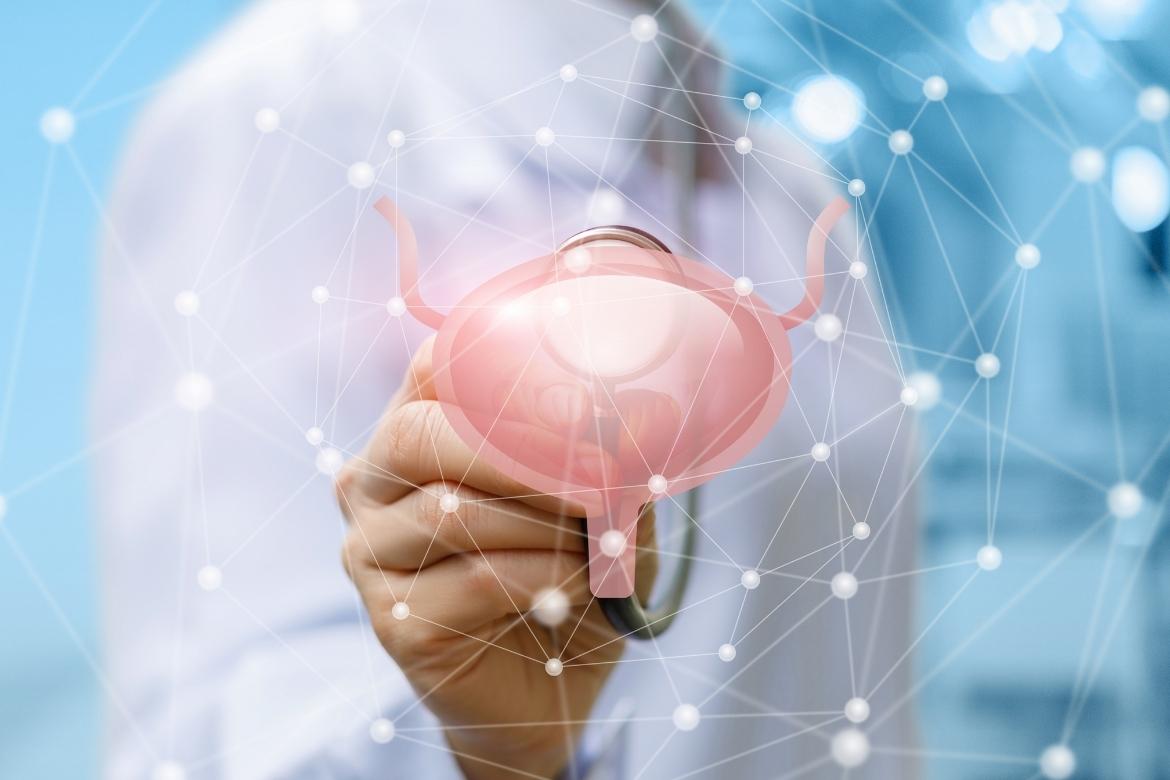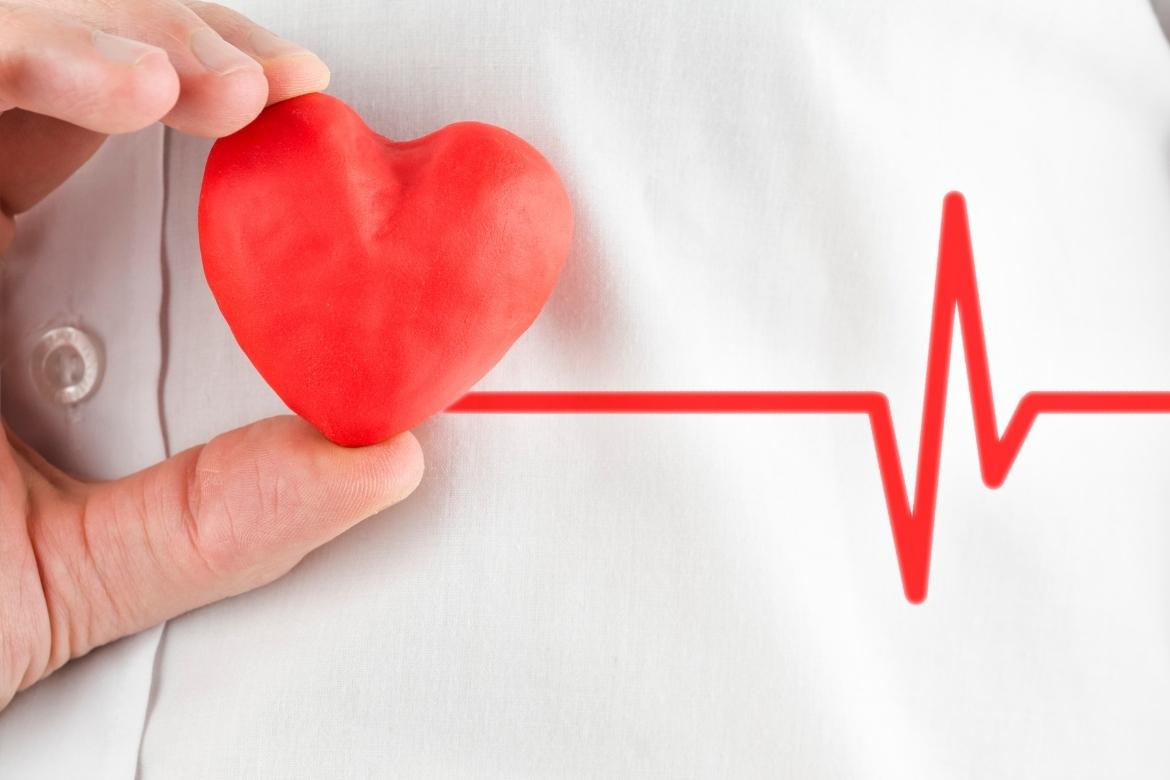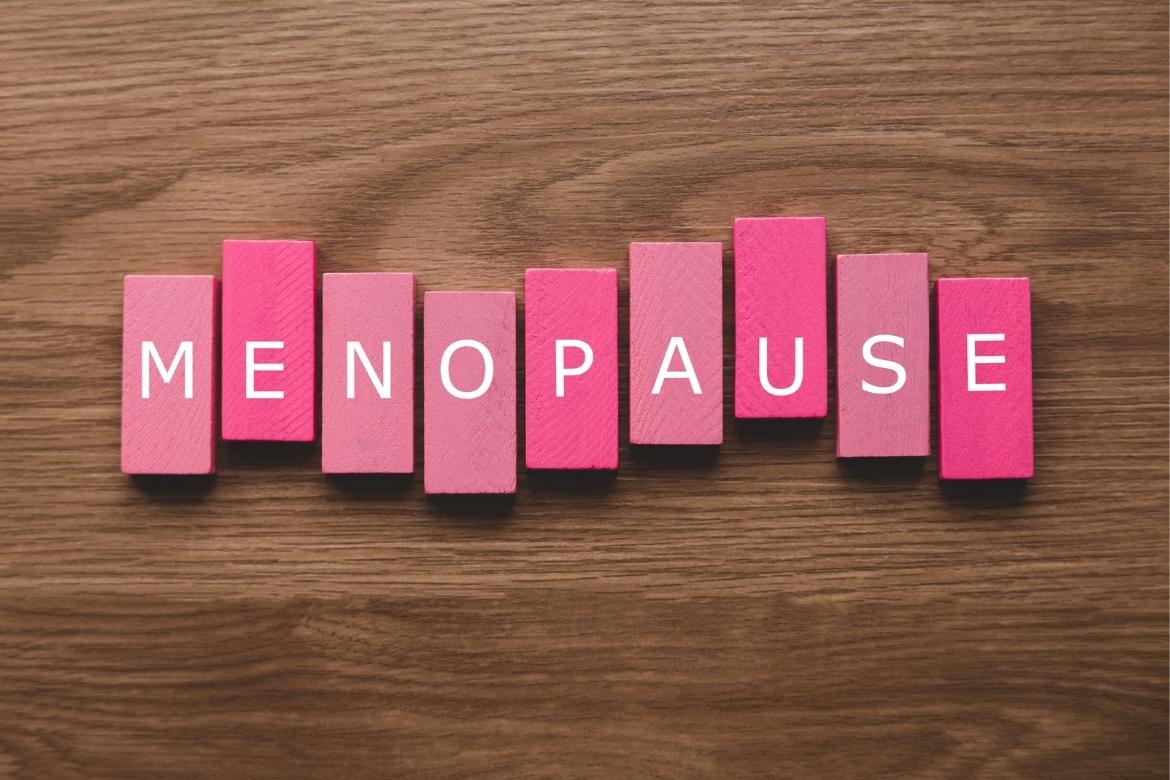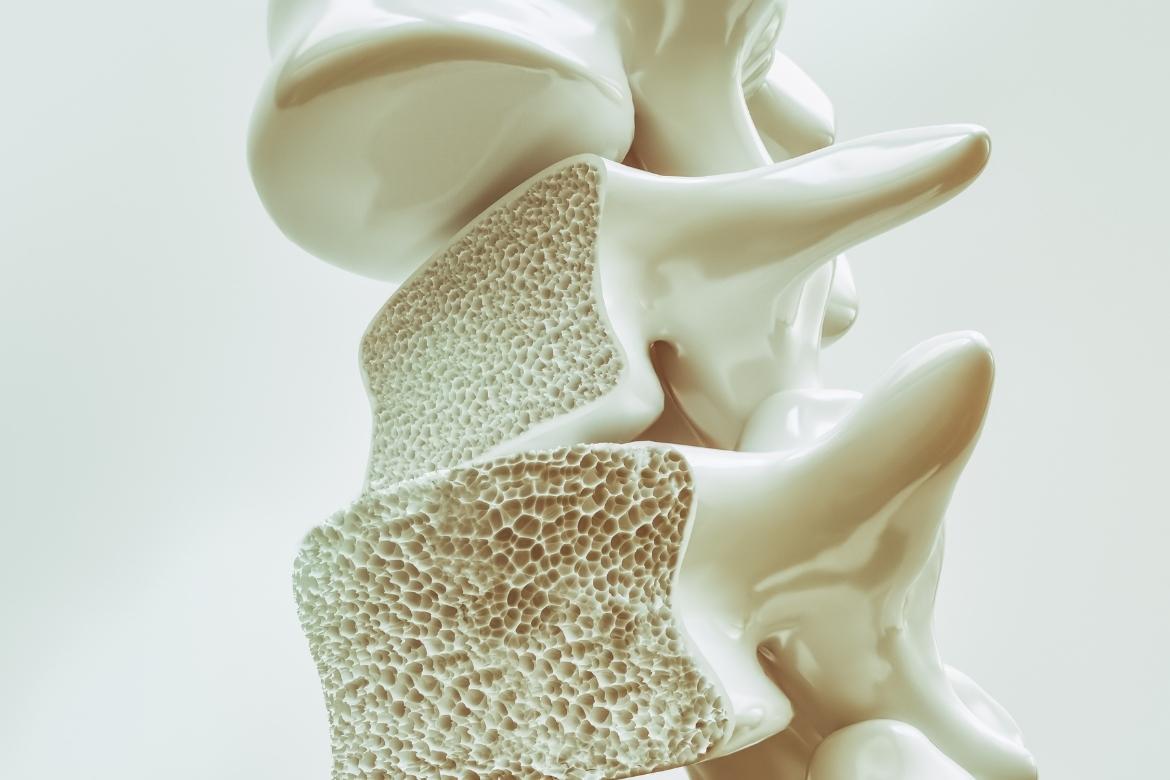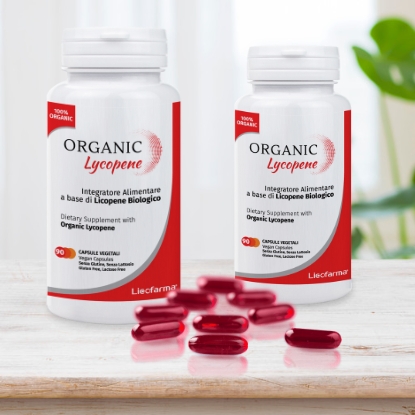What is the Prostate
The prostate is a gland that is part of the male reproductive and urinary system. Its shape is similar to that of a chestnut with the pointed side facing downwards. The size of the prostate in normal condition is about 3 centimeters in length, 4 cm in width and about 2 cm in thickness and has a weight of about 20-25 grams. These dimensions, however, vary from subject to subject depending on age and specific physiological conditions.
Where the Prostate is located
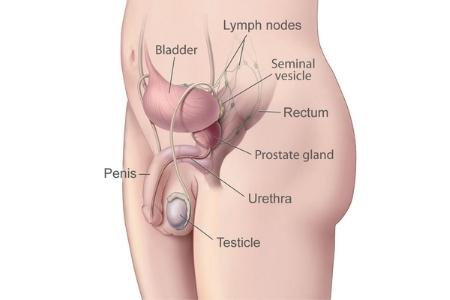 Having clarified what it is, let us now look at exactly where the prostate is located. The prostate gland is located in the lower urinary tract, immediately below the bladder, in front of the rectum. It almost completely surrounds the urethra, the channel through which urine flows outward.
Having clarified what it is, let us now look at exactly where the prostate is located. The prostate gland is located in the lower urinary tract, immediately below the bladder, in front of the rectum. It almost completely surrounds the urethra, the channel through which urine flows outward.
What the Prostate is for
As far as the functions of the prostate are concerned, its main role is to produce and release prostatic fluid which makes up about 20-30% of sperm. Prostate fluid is of fundamental importance as it contains the main substances necessary for the nourishment and survival of spermatozoa. It also plays an important role in the control of urinary flow due to the fact that its muscle fibres completely surround the urethra.
Urinary Tract and Prostate Disorders: Symptoms and Causes
The link between prostate and urinary disorders depends on the fact that the first tract of the urethra is completely enveloped by the prostate gland, consequently any changes in its volume or structure can create obstacles to the flow of urine. The most common of these disorders are inflamed prostate and enlarged prostate.
Let us see specifically what are the symptoms, causes and remedies of these disorders.
Inflamed Prostate: Symptoms, Causes and Remedies
Inflammation of the prostate is called prostatitis. It can be bacterial, i.e. caused by bacteria including Escherichia coli, Klebsiella and Enterococcus faecalis, or abacterial, when the inflammation does not depend on the presence of bacteria, also called pelvic pain syndrome.
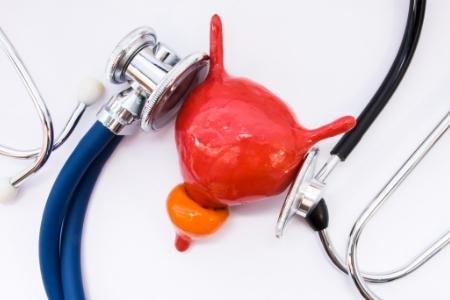 Bacterial prostatitis, in turn, can be acute or chronic. The main symptoms of an inflamed prostate are pain mainly in the genital area, fever, urinary frequency and urgency and pain during urination. When these symptoms last more or less intensely for more than three months we speak of chronic prostatitis.
Bacterial prostatitis, in turn, can be acute or chronic. The main symptoms of an inflamed prostate are pain mainly in the genital area, fever, urinary frequency and urgency and pain during urination. When these symptoms last more or less intensely for more than three months we speak of chronic prostatitis.
The main remedies used to treat an inflamed prostate depend on the type of prostatitis. Generally they are specific pharmacological treatments that aim to eradicate the bacteria responsible for the inflammation. In the case of acute prostatitis, drugs are combined with a healthy lifestyle and a proper diet, as well as physiotherapy and rehabilitation depending on the intensity of the problem.
Enlarged Prostate: Symptoms, Causes and Remedies
Enlarged prostate, more correctly Benign Prostatic Hypertrophy or BPH, is a disorder characterized by the progressive increase in the volume of the prostate gland. In fact, from about the age of 30 until the age of 70, the prostate is affected by a degenerative process which leads to a gradual increase in volume.
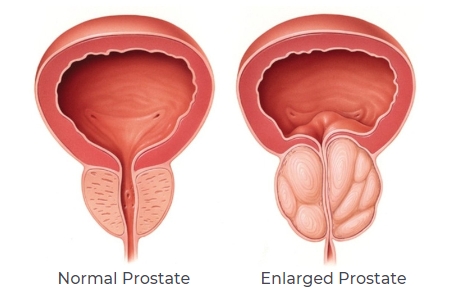 Although an enlarged prostate does not necessarily cause discomfort, in a good percentage of men over 50 this condition leads to a series of disorders and symptoms that can affect not only their physical but also their psychological well-being.
Although an enlarged prostate does not necessarily cause discomfort, in a good percentage of men over 50 this condition leads to a series of disorders and symptoms that can affect not only their physical but also their psychological well-being.
In addition to age, other causes of an enlarged prostate include family history and genetic predisposition, hormonal changes typical of adulthood, and chronic inflammation of the prostate.
Why an enlarged prostate is associated with urinary problems
The enlarged prostate causes compression of the urethra which prevents the normal passage of urine. This requires the bladder to contract more to empty completely. However, the bladder, being a muscle, starts to thicken and become less and less elastic, progressively reducing the amount of urine it can hold. This leads to the need to urinate more and more frequently and to irregular streams.
Enlarged Prostate: Symptoms and Remedies
What are the main symptoms of enlarged prostate? They usually fall into two groups:
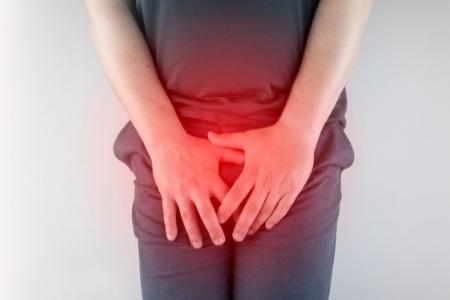 Irritative symptoms, typical of the early stage when there is not yet obstruction of the urethra and bladder neck, include:
Irritative symptoms, typical of the early stage when there is not yet obstruction of the urethra and bladder neck, include:
- Sudden and urgent need to urinate.
- Need to urinate frequently, especially at night.
- Involuntary incontinence due to incomplete emptying of the bladder.
- Reduced urination volume.
Obstructive symptoms, which occur when prostate enlargement obstructs the urethra and bladder neck, include:
- Weak, slow and/or intermittent urine flow.
- Feeling of incomplete emptying of the bladder after urinating.
- Difficulty initiating urination.
- Need to exert pressure to facilitate urination.
- Drip following urination.
With regards to remedies on how to decrease enlarged prostate, there are actually different approaches depending on the level of manifestation of symptoms and the impact they have on a man's daily life. The main solutions are:
- Watchful waiting, when the symptoms do not occur or are mild you act mainly on lifestyle, diet in particular, combined with regular check-ups.
- Pharmacological treatment, when the symptoms are bothersome and begin to negatively affect quality of life, active treatment, usually pharmacological, is used.
- Surgical treatment, which is used when pharmacological treatments are ineffective or in the presence of complications.
Diet and lifestyle allies in prostate health
As always, following a healthy lifestyle and a proper diet are the first step to keeping this gland so small but so important to men's health.
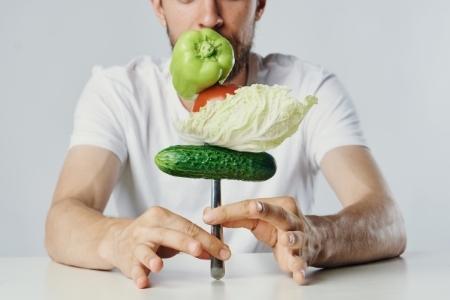 With regard to diet it is recommended to adopt a diet rich in whole fiber, fruit and lots of fresh vegetables, as well as foods rich in selenium and zinc. In particular, the best foods for the prostate that should always be present in the diet are tomatoes, rich in lycopene powerful antioxidant particularly useful for the welfare of the prostate, cruciferous vegetables, especially broccoli, cabbage and cauliflower, legumes such as beans and lentils and fish rich in omega-3 and omega-6.
With regard to diet it is recommended to adopt a diet rich in whole fiber, fruit and lots of fresh vegetables, as well as foods rich in selenium and zinc. In particular, the best foods for the prostate that should always be present in the diet are tomatoes, rich in lycopene powerful antioxidant particularly useful for the welfare of the prostate, cruciferous vegetables, especially broccoli, cabbage and cauliflower, legumes such as beans and lentils and fish rich in omega-3 and omega-6.
Foods that are good for the prostate also include Green Tea, berries and red fruits, which are rich in vitamin C and natural antioxidants..
Obviously water is also very important, you should drink at least two liters of water per day to stimulate the drainage of fluids. The best water recommended for the prostate is low-sodium low-mineral water with diuretic action.
Instead, with regard to the question of enlarged prostate and foods to avoid, you should definitely reduce the consumption of animal fats, fried foods, refined foods, sausages, spices, beer and alcohol. In addition to diet, other useful tips are:
- have regular urological check-ups after the age of 45;
- regular physical activity, such as long walks;
- avoid an excessively sedentary lifestyle;
- reduce stress and anxiety;
- maintain a healthy and regular sexual activity.
Lycopene and Prostate
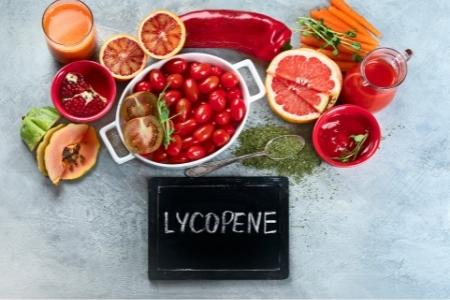 We have already mentioned the beneficial relationship that links tomatoes and prostate. The tomato is known to be the main source of lycopene which is good for the prostate thanks to its valuable antioxidant properties. In fact, perhaps not everyone knows that one of the places where lycopene accumulates most in the body is precisely the prostate.
We have already mentioned the beneficial relationship that links tomatoes and prostate. The tomato is known to be the main source of lycopene which is good for the prostate thanks to its valuable antioxidant properties. In fact, perhaps not everyone knows that one of the places where lycopene accumulates most in the body is precisely the prostate.
At prostate level, several studies have shown that this antioxidant can help reduce inflammatory processes by neutralizing the free radicals responsible for them. In this way it helps to reduce the risk of diseases and disorders related to oxidative stress processes.
In particular, studies carried out on humans have shown that Lycopene, in synergy with other natural active ingredients, in particular Serenoa Repens and Selenium, can help improve the symptoms of chronic prostatitis. Even when it has been tested and studied in vivo on subjects with benign prostatic hypertrophy, Lycopene has been shown to have some positive effects on associated symptoms and prostate volume.
Supplements and Prostate
Help for the health and wellbeing of the prostate also comes, therefore, from nature. In addition to Lycopene, in fact, there are other active ingredients of plant origin for which the scientific literature provides evidence of their usefulness in maintaining the welfare of the prostate and male urinary tract. These include, first of all, Serenoa Repens, followed by Pumpkin Seeds, Pygeum Africanum and Nettle Root.
Health Prostate Plus, the supplement by Licofarma based on Organic Lycopene, Serenoa Repens and Selenium with synergistic action. A 100% natural ally useful for the welfare of the prostate and urinary tract.
Riferimenti Bibliografici
- Wertz K. Lycopene effects contributing to prostate health. Nutr Cancer. 2009; 61:775-83.
- Minutoli L, Altavilla D, Marini H, et al. Inhibitors of apoptosis proteins in experimental benign prostatic hyperplasia: effects of serenoa repens, selenium and lycopene. Journal of Biomedical Science 2014, 21:19
- Schwarz S, Obermüller-Jevic UC, Hellmis E, et al. Lycopene inhibits disease progression in patients with benign prostate hyperplasia. J Nutr. 2008; 138:49-53.
- Cazzola P. Licopene e salute della prostata. Archivio Italiano di Urologia e Andrologia 2011; 83, 2, Supplemento 2
Disclaimer:
The information on this site is for informational purposes only and is not intended in any way to replace the advice of your doctor or specialist. With reference to the products recommended on the site, it is recommended to always seek the advice of your doctor or specialist before use. In no event shall the owner of the site be liable for any damages resulting from the misuse by the user of the content and information published on the site.

